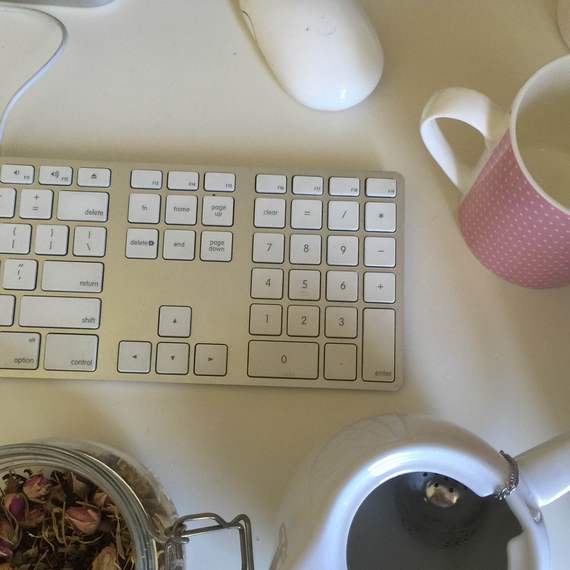The first words are often the hardest, even when they come easily. The first words are ones that open up a new world, introduce us to new characters, ones that we might not necessarily be acquainted with, at least not in action even if you have filled the pages of a notebook with character traits and have countless images pinned on a Pinterest board. For me, the beginning is the most testing time of writing a book. The road ahead seems so long and in between those stretches of road where things seem partially illuminated, the overall route feels very dimly lit.
At 5,000 words I feel impatient that I still don't quite know where things are going. This feeling sticks with me until I reach 10,000 words and it doesn't matter how many people believe in me, or whether I believe in myself. Because this here is a matter of trust, of perseverance, of being able to dance with creative magic long enough to create something out of nothing without knowing the outcome and being comfortable with that.
Even though I know all of this, I still think that I should be hitting my stride by now, but I'm not quite there, and so the discomfort amplifies.
I make another cup of tea.
What if this isn't the "right" book for me to be writing? Shouldn't this be easier?
I challenge these tricky sabotages dusted with irrational expectations and unhelpful questions by focusing on one thing:
What happens next?
Not tomorrow, or next week, or on page 229, but the next sentence, the next line of dialogue. I focus on the scene at hand. I'm still working hard to tap into that place of trust and openness because I know that this is where my best work comes from. The only way I know how to get to that place is by being present. So I approach each session the same way: I push the earbuds in, press play, close my eyes, breathe in, and imagine myself in scene like a quiet observer, trusting that my words will lead me to where we need to go.
And they always do.
Eventually... after days of awkwardly dancing with the muse, something happens. The thing I've been waiting for since my opening sentence. The thing that happens once you let go of judgement, of fear, of doubt, of resistance. Suddenly, instead of having to fit in the time to write, I'm practically begging the universe to help me find more time to write. And it takes everything to not drop every other responsibility in my life for a chance to get back in scene with my characters.
This is what I wish all new writers knew. Especially the pantsers. If you push past the discomfort by treating your first draft with gentleness and reverence, there will come a point that your story will take hold of you instead of you taking hold of your story. With every sentence of dialogue, with every scene, you almost take a back seat as your characters show you where they want the story to lead.
This is the beauty of writing.
I hope you stick with it long enough to come to know it.
This post first appeared on Vanessa Carnevale's website.
